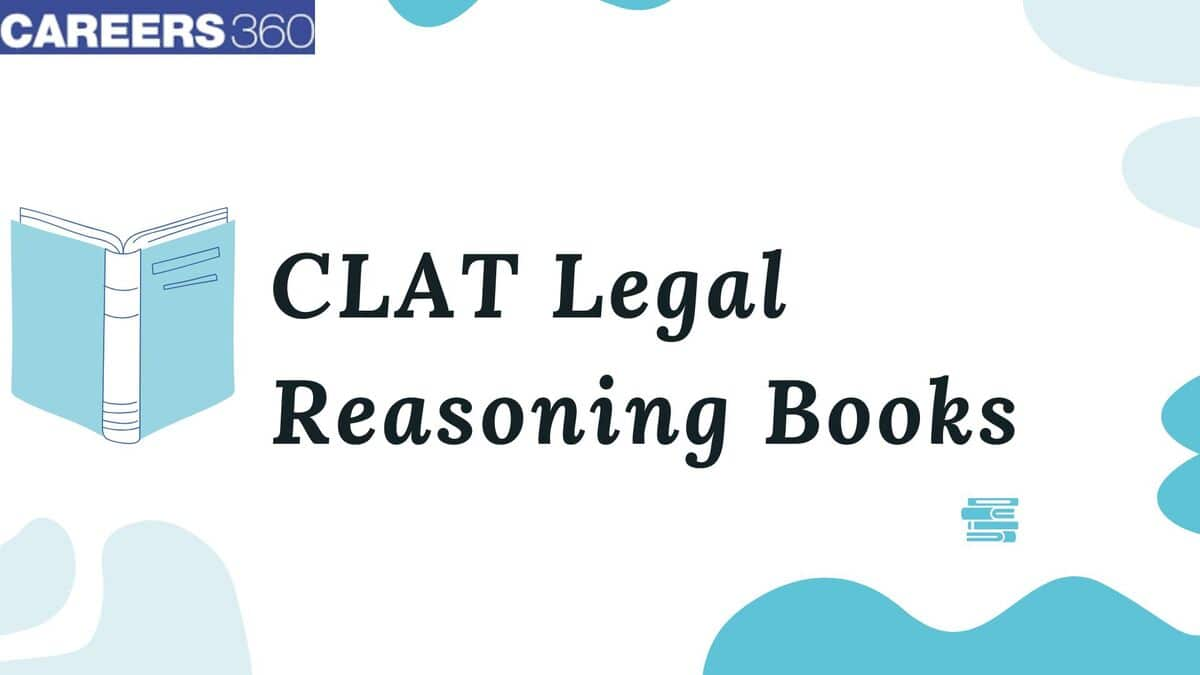Jindal Global Law School Admissions 2026
Ranked #1 Law School in India & South Asia by QS- World University Rankings | Merit cum means scholarships | Early Admissions (Pahse 2) Deadline: 28th Feb’26
The Common Law Admission Test (CLAT) is the most popular law entrance exam in India. It assesses candidates across multiple sections, each designed to test different skills essential for law. Among these, the legal reasoning subject is one of the most decisive sections in the CLAT exam. It focuses on candidates’ critical thinking, ability to interpret legal texts, and application of rules and principles to various situations – essential for law schools. With the CLAT 2026 scheduled for December 7, 2025, aspirants have a limited preparation window, making it a priority for students to refer to reliable study materials and recommended books for CLAT legal reasoning 2026.

Legal Reasoning Book for CLAT 2026 is essential for focused preparation. These books and CLAT study materials simplify complex legal concepts and provide questions that are similar to the actual exam. Regular practice using the CLAT preparation books boosts confidence level and makes it easier to answer questions on the exam date.
Particulars | Details |
Type of questions | Multiple Choice Questions (MCQs) |
Total questions | 28-32 |
Weightage | 25% |
Number of passages | 4 - 5 |
Length of passage | Around 450-word passages focusing on topics like public policy-making, legal matters, or moral philosophical inquiries |
Difficulty level | Moderate |
Total marks | 28 - 32 |
Important topics | Law of Contracts, Legal Marxism, Personal Law, etc. |
Candidates should seek the best CLAT legal reasoning material for preparation. These books will help students prepare for the entrance exam. Interested students planning to appear for CLAT may also obtain free CLAT preparation books in PDF format.
Books | Key Highlights |
Legal Awareness and Legal Aptitude by AP Bhardwaj |
|
Objective Legal Aptitude by RS Agarwal | - |
Legal Awareness and Legal Reasoning by Pearson |
|
Bare Acts of Indian Constitution | - |
GK Publications CLAT Master Guide | Complete solved paper of CLAT 2025 Three full-length practice papers for extensive exam preparation In-depth exploration of legal aptitude, covering both legal knowledge and reasoning Practice exercises and sample questions for effective topic assessment Designed to enhance candidates' understanding and application of legal concepts |
Important Judgment That Transformed India by Alex Andrews George | - |
The Pearson Guide to the CLAT by Harsh Gagrani |
|
Here are some preparation tips to clear the legal reasoning section of the CLAT 2026 exam:
Candidates must refer to the legal reasoning recommended books for their CLAT 2026 preparation. The list of best books for CLAT 2026.
Regular revision is the key when it comes to passing the CLAT or any other exam. During their CLAT 2026 legal reasoning preparation, candidates must make sure they frequently revisit the topics that they have learnt during the course of preparation.
Students should ensure that their minds stay fresh and free from any unnecessary stress. Maintaining a balanced routine between preparation and relaxing helps in focusing and prevents frequent burnout.
Ranked #1 Law School in India & South Asia by QS- World University Rankings | Merit cum means scholarships | Early Admissions (Pahse 2) Deadline: 28th Feb’26
Among top 100 Universities Globally in the Times Higher Education (THE) Interdisciplinary Science Rankings 2026
You may also check:
Frequently Asked Questions (FAQs)
The CLAT 2026 Legal Reasoning section carries a significant weightage of approximately 25%.
Some of the highly recommended books for CLAT legal reasoning section are the Pearson Guide to the CLAT by Harsh Gagrani and Legal Awareness and Legal Aptitude by AP Bhardwaj.
One should study for 1-2 hours every day for the CLAT 2026 legal reasoning section.
On Question asked by student community
Since you have not specified your category, I will answer for all categories. A CLAT rank of 38169 (typically 40-45 marks) makes admission to top NLUs difficult. For General candidates, chances are nil. Even for OBC, SC, and ST categories, admission is primarily possible only through state domicile quotas or
After the CLAT results are declared, candidates participate in a centralised online counselling process managed by the Consortium of NLUs. Eligible candidates register on the official portal, submit their NLU preference list , and pay a counselling fee. Seat allotment happens across multiple rounds based on rank, category, and preferences,
Hi, you can apply for admissions in Nirma University, NFSU Ahemdabad, Alliance, IPU University and affiliated instiutes (in case you are reserved category candidates), UPES Dehradun, BITS Law School etc.
Start preparing for CLAT by first understanding the exam pattern and syllabus, which includes English, Current Affairs, Legal Reasoning, Logical Reasoning, and Quantitative Techniques. Make a simple daily routine and begin with basics read newspapers regularly for current affairs, practice comprehension passages for English and legal sections, and solve basic
Hello,
With a CLAT AIR of 33599 and SC category rank of 2103, and being a Delhi domicile, your chances at IP University (GGSIPU) are moderate to good, especially in later counselling rounds.
Based on previous year trends, some IPU-affiliated law colleges have closed at higher SC category ranks, so
Among top 100 Universities Globally in the Times Higher Education (THE) Interdisciplinary Science Rankings 2026
NAAC A+ Accredited | Among top 2% Universities Globally (QS World University Rankings 2026)
Excellent curriculum; an impressive range of electives, besides core law courses. Up to 100% merit scholarship on a first-come, first-served basis
Moot Court | Mock trials | Legal Aid Clinic
Admissions open for B.A. LL.B. (Hons.), B.B.A. LL.B. (Hons.) and LL.B Program (3 Years) | School of Law, MRU ranked No. 1 in Law Schools of Excellence in India by GHRDC (2023)
NAAC A++ Accredited | Ranked #11 by NIRF